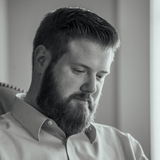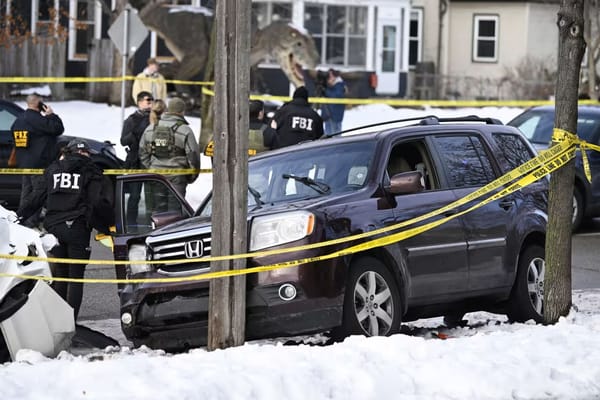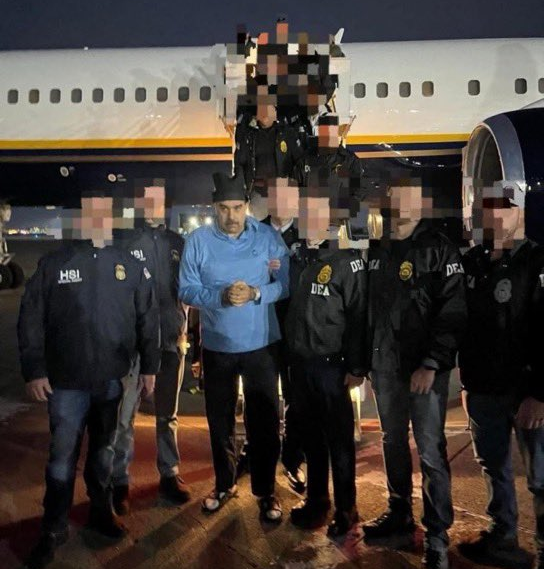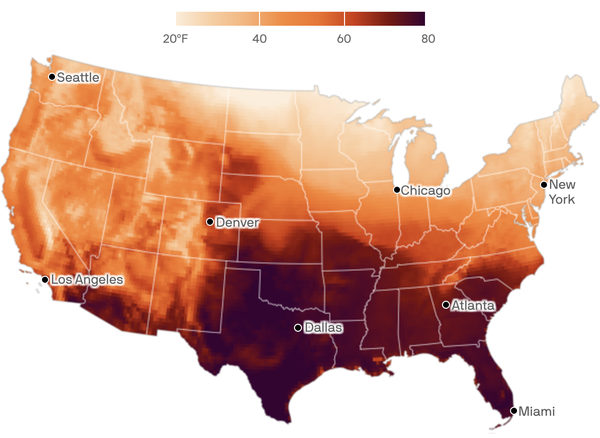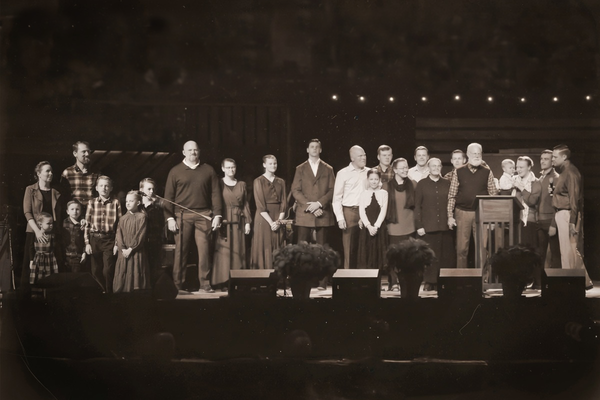The Mark of the Firstborn
A poetic retelling of Cain and Abel—exploring longing, silence, worship, and the sin that crouches at every door. More than a murder, it’s a mirror of the human heart and a call to hear the Voice that still speaks.
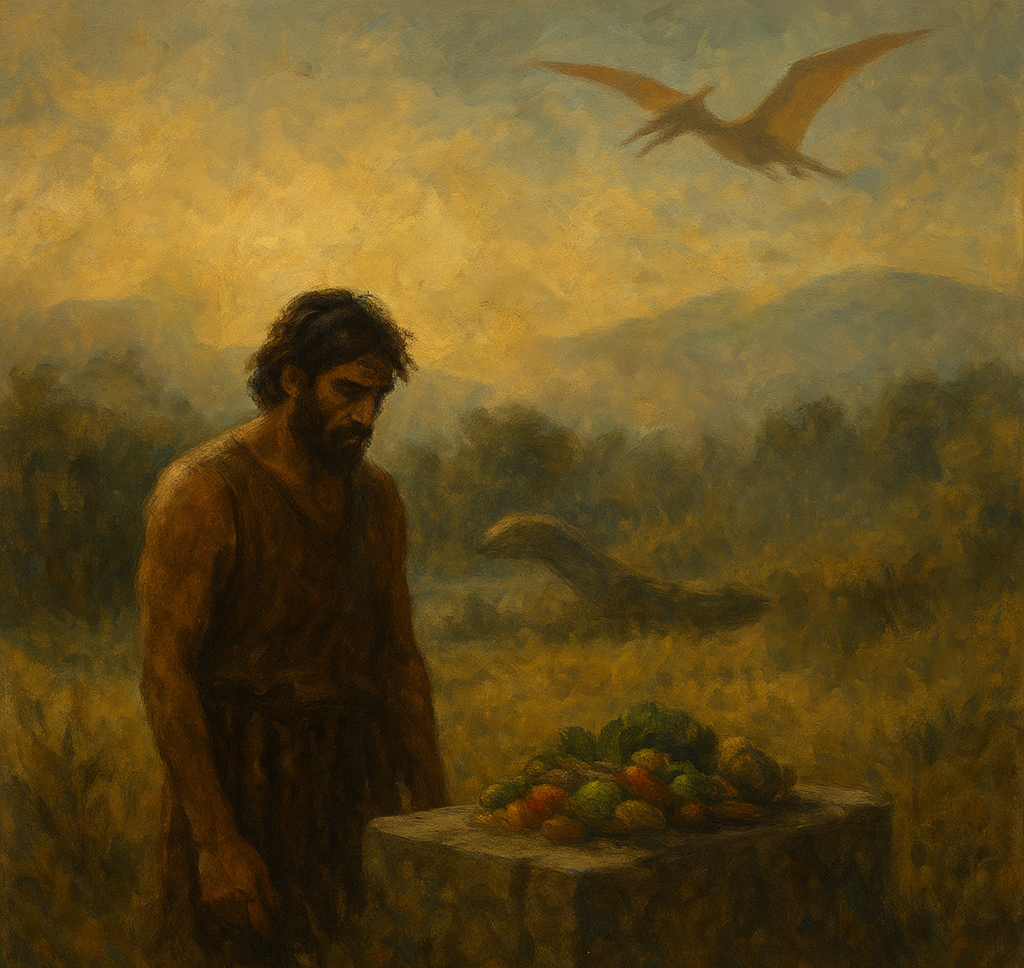
NOTE: As I’ve been writing on the nature of sin—and had the chance to teach on it recently to nearly a hundred high school students—I’ve been stirred to approach it from another angle: a narrative deeply rooted in the Bible, but one I’ve chosen to allegorize with some poetic license, to explore its archetypal significance for our lives today. The Bible is powerful in its simplicity—what it says, but also what it leaves unsaid. The story of Cain and Abel is brief, almost abrupt, but rich with meaning in what it implies. This retelling draws from the Biblical account, staying faithful to its truth, while filling in dramatic and emotional details to help us grasp the tension, longing, and moral weight of the first murder. This is not meant to be doctrine, but metaphor—a story meant to help us see the heart of man, the silence of God, and the sin that still waits at every man’s door.
Part 1: The Separation
“Sin, when it is fully grown, brings forth death.” – James 1:15
In the beginning, it was not toil or terror that marked mankind’s exile, but silence.
The garden had been more than a dwelling—it had been a sanctuary of divine presence. The soil bore fruit without sweat. Adam and Eve walked with the Maker, face to face, heart to heart, in the Spirit’s hush of evening. There was order. There was wholeness. There was peace.
Then came the fracture.
Not first in deed, but in doubt. Suspicion slithered in—of God’s goodness, of His motives, of His heart. And from that doubt came detachment. From detachment, distrust. From distrust, defiance. A bite, a breach, a brokenness.
With transgression came death—not in an instant, but like a sunset sliding down the curve of the world. The fracture was not a crack in the surface of things, but a rift through the core: man from God, man from woman, man from self.
Adam pointed away from himself. “The woman you gave me . . . ”
Thus began the unraveling.
They were driven from the garden, the cherubim standing sentinel with a flaming sword, a line of no return. And though their hearts still beat and their bodies still bore children, the pulse of divine intimacy had grown faint, replaced by fig leaves, fear, and silence.
And yet, life continued. Two sons were born outside the gates of paradise—Cain and Abel.
Part 2: The Ancient World and the Hidden Hunger
The world, some five and a half millennia ago, was untamed and thunderous. No cities yet scratched the sky. There were no pyramids, no coliseums, no empires or walls—only the trembling vastness of the wild.
Before the flood, the world roared with life. Not the kind of life we know now—narrowed, scattered, endangered—but life in abundance, in overwhelming scale and unimaginable size. Cain did not walk a tame planet. He lived in the unspoiled aftermath of creation’s peak.
On the horizon, the slow, thunderous gait of Argentinosaurus shook the plains—eighty tons of scale and sinew swaying above the trees, its head peering over forests like a living tower. Herds of these gentle behemoths grazed near lakes and riverbanks, their tails sweeping the ground like massive cedar trees.
Above, the skies were alive with shadows. Quetzalcoatlus, wings stretched fifty feet across, glided over mountaintops, scanning the earth below. When they landed, they stood tall as giraffes, stork-like and strange. Their cries pierced the air.
The rivers ran thick and wide, hosting Spinosaurus—semi-aquatic giants with crocodile jaws and sails along their backs.
And then there were the lowly terrors. Arthropleura, a millipede the length of a grown man, coiled under the leaves. Megalania, a giant lizard, crept through the brush. Even the insects were exaggerated—dragonflies with two-foot wingspans darted through the ferns like flitting daggers.
Cain, the elder, was a cultivator of the soil, the firstborn of exile. He furrowed rows with muscle and sweat, coaxing fruit from cursed earth. His tribe grew large, their garments stitched from plant fiber and skin, their lives shaped by seasons and yield.
Abel, the younger, was a keeper of flocks. He lived among beasts not yet fully wild, shepherding gentleness and sacrifice. His people drank from streams and wore wool. They lived simply but richly, moving with the rhythms of creation.
No lion had yet leapt upon a child. No war had yet turned the soil red. But the tension had begun—not from without, but within. The enemy was no longer only the serpent; the enemy was fast becoming brother to brother.
Cain and Abel lived close, trading goods—meat for bread, milk for grain, skins for tools. But the air between them thinned as the longing for God thickened. Neither could live by food alone. They hungered for voice.
Not memory. Not myth. Presence.
Part 3: The Offering and the Absence
To worship is to risk everything in hope that God is still listening.
Cain could not bear the silence anymore. He longed—not for comfort, nor for power—but for Presence. His parents had once heard the Voice in the garden. Now he only heard wind in the trees and the faint murmur of conscience. Yet something in him stirred. He had to try.
No command had yet been written. No priesthood yet ordained. Still, Cain knew. Knew that to approach the unseen God, he must bring something of himself. A token. An offering. An acknowledgment that he, too, bore the fault, that he, too, was an exile.
And so Cain, with resolve, gathered the best his land could offer. His hands moved with devotion, not mere duty. He selected the choicest grains, the ripest fruit, herbs fragrant and rare. Perhaps he chose plants now lost to history—brilliant in color and taste. With woven baskets heaped, he left the camp in the predawn mist and made his way to a quiet stream where the earth hummed with peace.
There, on a stone table shaped more by time than by tools, he arranged his offering with reverence. Not casually, not carelessly—but as one approaching a throne unseen. He lifted his hands to the sky and waited. No thunder cracked. No wind rose. The earth did not shake. His heart beat loud in the silence.
But no fire fell.
No Voice spoke.
Nothing.
Cain stood still. His arms dropped. He frowned—not in rebellion, but in resignation. He had done all he knew. The silence, once aching with potential, now sounded hollow. He gathered his things, left the baskets behind, and walked home.
His wife, seeing him return, asked softly, “Did you find Him?”
Cain shrugged. “Nothing happened.”
She looked down. “I’m sorry.”
He nodded. “Me too.”
Part 4: The Brother’s Fire
“The Lord had regard for Abel and his offering.” – Genesis 4:4
The next morning, Cain rose early. His heart was unsettled, but his mind wandered to Abel. He packed a satchel with dried mushrooms, raisins, and a flat cake of grain, slung a goatskin of water across his shoulder, and set off.
As he neared the pastures, he heard the familiar bleating of sheep. Dew softened the ground beneath his feet. Then he saw them—fresh tracks in the earth. Abel’s.
He followed.
The path wound through rock and thistle until it opened into a hidden meadow embraced by stone. The stream whispered nearby. The grass stood still. There, before him, was Abel—silent, solemn—standing over a lamb.
It was beautiful, spotless, trembling. Its legs were bound. Abel’s face was pale, his eyes wet. He whispered something Cain could not hear.
Then the knife.
A single motion.
Blood spilled onto the altar stone. The lamb gasped, then fell still.
And Abel—Abel knelt, lifted his face, and cried out—not in anguish, but in adoration.
Cain stood frozen, half in shadow, half in shame. And then it came.
Not to him, but to Abel.
Something stirred.
Not sound, not shape—but Presence. A hush fell over the meadow as if time itself paused to listen. Abel’s eyes widened, his face bathed in light unseen, and he wept—not from loss, but from joy.
Cain stepped back.
He had brought more, hadn’t he?
His labor was harder, longer.
Why, then, had God come to his brother?
Part 5: The Warning at the Door
“Why are you angry? And why has your face fallen?” – Genesis 4:6
Cain walked home alone.
His hands were clenched, his thoughts spinning. He had brought his best. He had waited. But no fire came. No joy. No Voice. Only silence.
And now Abel—his younger brother, the one he had taught to walk, to speak—was glowing with divine favor. Why?
His steps slowed.
His chest burned.
He sat at the entrance of his tent, his arms folded across his chest. He could not speak to his wife. He could not speak to himself.
Then the Presence came.
Not with embrace. Not with peace.
But with a question.
Not in audible sound, but in that place where words are formed before they are spoken:
“Cain, why is your face fallen? If you do what is right, will you not be accepted?”
Cain startled, then stiffened.
What had he done wrong? He had labored. He had brought the fruit of his toil. He had offered in reverence. Why was it not enough?
But the Voice was not finished:
“Sin is crouching at your door. Its desire is for you, but you must master it.”
Cain’s breath caught. He looked around. No beast was near. No serpent whispered.
And yet—there it was. A crouching thing. Not before him, but within him.
What was this thing?
Was it jealousy? Was it grief? Was it shame? Was it the ache of being unseen?
He didn’t know.
He only knew that it burned. That it wanted something. That it had claws.
And that the silence had now become a voice—and that voice had not coddled him, but warned him.
He could not return to sleep. He could not return to work. He could not return to worship.
He could only brood.
Part 6: A Different Ending (That Might Have Been)
“A broken spirit and a contrite heart, O God, You will not despise.” – Psalm 51:17
Suppose—just suppose—Cain had lifted his face to the Voice.
Suppose he had said, “Ah, my Lord, at last! I hear You. That is enough.”
Suppose he had crumpled to his knees and whispered, “Rebuke me, and I will change. But please, do not go away.”
Suppose he had asked, “Show me, then—what is the sin? What waits at the threshold? Is it pride? Is it anger? Is it fear?”
Suppose the heavens had answered, gently:
“A contrite heart I will not despise.”
Then perhaps Cain’s house would have been filled with light. His tribe would have gathered around in joy. The Presence he had longed for would have come near—not because his offering was perfect, but because his heart was broken and open.
But that is not what happened.
Not in this world.
Part 7: The Field and the Fury
“Whoever hates his brother is a murderer . . . .” – 1 John 3:15
The sun dipped low. Evening shadows stretched long across the plain.
Cain rose from his seat. His face was hard now, not fallen. Set.
His wife, watching him prepare to leave, asked gently, “Where are you going?”
“I need to speak with my brother,” he said. “Perhaps he understands something I don’t. Perhaps he can help.”
She touched his arm. “Yes. Do that. He walks in peace. Maybe he can show you the way back to God.”
But her words, though meant in love, stung. She thinks Abel is better than me . . . She thinks I haven’t done enough.
Cain walked the familiar path. His brother would be in the field.
He saw him there—Abel, leaning on his staff, watching his flock, at ease in the evening light. The younger man looked up as his brother approached.
“Cain,” he smiled, “you’ve come.”
Cain nodded, his voice low. “I came to speak with you this morning . . . but I saw you. I saw what you did. I saw what happened.”
Abel’s smile faded. “And?”
Cain’s eyes were weary. “I don’t understand. You did less than I did. You brought one lamb. I brought the harvest of weeks. And yet . . . He came to you. I saw it on your face. I felt it in the air. I’ve wanted that all my life. And now I feel gutted. Empty. Unseen.”
Abel’s eyes welled with sorrow. “Oh, my brother . . . I did not mean to offend.”
“You didn’t. But I saw that you have something I don’t. And I don’t know why.”
Abel looked down. He said nothing.
“I heard His voice,” Cain whispered. “Last night. Not like you did, in joy. He rebuked me. He said sin is at my door . . . waiting. That I must master it.”
Abel looked up. “Then He has not left you, Cain. That is mercy. He is still speaking to you. That means hope.”
“Hope?” Cain said, his voice rising. “Did you not hear me? He said it’s my fault. That His distance is because of me.”
Abel stepped forward. “Then accept His word, brother. Come to Him on His terms. He is God—not a man to be bargained with. Not a judge to be convinced. He knows. He weighs. He sees what we cannot.”
Cain’s hands were trembling.
“So now you’re my teacher?” he asked. “You’re the one with the answers?”
Abel shook his head. “No. I only know that we do not approach God as equals. He sets the terms. We bring not our pride, but our need. A broken heart He will not despise.”
But Cain heard none of it.
In that moment, Abel’s voice became unbearable.
Cain saw not his brother, but a rival.
Not a shepherd, but a threat.
Not family, but judgment.
His mind clouded. His vision blurred. A stone lay at his feet.
He picked it up.
Part 8: Blood in the Soil
“The voice of your brother’s blood cries out to Me from the ground.” – Genesis 4:10
The blow landed without warning.
Abel crumpled beneath it, gasping, groaning. His hand reached out—not in defense, but in shock. In betrayal.
But Cain’s fury had no room for mercy. Again the stone came down. Again. And again. Until breath ceased. Until movement stopped. Until the silence returned—a silence of horror.
Cain stood over the body.
Chest heaving.
Stone slick with blood.
His brother’s blood.
The same blood that had cried out in worship now cried out in pain. And still, God said nothing.
Cain dropped the stone.
He looked at what he had done—not with remorse, not yet—but with emptiness. With rage spent. With the terrifying realization that he had crossed a threshold from which there would be no return.
He had given God blood.
But not in worship.
In rebellion.
“You want sacrifice?” **he muttered. **“Then take it. Take it Your way.”
And then—again—the Voice.
Not a whisper.
Not thunder.
Just words in the place where words are known before they are heard:
“Where is Abel, your brother?”
Cain looked up. His lips parted.
“I—I don’t know. Am I my brother’s keeper?”
But the voice pressed in:
“What have you done? His blood cries to Me from the ground.”
The ground—the same ground Cain had tilled in hope—now bore witness against him.
He felt it. A mark on his soul. A severance deeper than exile. He had become not just one outside the garden—but one feared, one marked.
And then the sentence:
“You are cursed from the ground . . . a fugitive and a wanderer you shall be.”
Cain fell silent.
Then he spoke—not in repentance, but in self-pity.
“My punishment is more than I can bear. Everyone who sees me will want to kill me.”
And the Lord replied:
“No. I will mark you. You will bear a sign—not of favor, but of warning. No hand will touch you. Not out of mercy. But out of dread.”
And thus Cain, the firstborn of the world, became its first murderer.
The one who brought the offering without blood . . . spilled the blood of his own brother.
The one who refused to humble himself . . . was marked and humbled by the wrath he could not master.
The one who sought the Voice . . . silenced it with his own hands.
Part 9: The Legacy of Two Altars
“By faith Abel offered to God a more acceptable sacrifice than Cain . . . and through his faith, though he died, he still speaks.” – Hebrews 11:4
The world went on.
The rivers flowed.
The sun rose.
But something had shifted.
The soil, once soft under Cain’s feet, turned hard to him. It no longer gave its strength. The fruit of his labor tasted bitter. He wandered east of Eden, east of everything familiar, marked not by scars on his skin, but by the weight of what he had done—and what he had refused to become.
He built cities. He fathered tribes. He fashioned tools and arts and war. Civilization bloomed under his hand—but it was a restless bloom, a haunted one. The memory of his brother lingered in the wind, echoed in the bloodline.
Abel had no descendants.
No tribe.
No land.
Just a voice.
But it was enough.
For his sacrifice had not been measured by quantity, but by heart. He had brought blood—not of rage, but of reverence. And though he was slain, he was not silenced. His worship became a whisper in every heart that longed for God not on their terms, but on His.
Two altars.
Two brothers.
One bowed.
One burned.
One heard.
One hid.
And the story—this first story of life outside Eden—became a pattern for all who would follow: that God does not regard the works of our hands, but the posture of our hearts.
That sin crouches still, at every threshold.
That presence still waits, beyond pride and fear, behind a veil torn not by stone or fire—but by brokenness and blood. And that even now, Abel still speaks—not through sermons or cities, but through the echo of surrendered worship.
Through the cry of the lamb.
Through the cost of obedience.
Through the blood that calls out—not for vengeance, but for redemption.
For there would come another Son, another Shepherd, whose blood would be spilled on the field of wrath—not by jealousy alone, but by all our sin.
And His blood, too, would speak.
“The sprinkled blood that speaks a better word than the blood of Abel.”
—Hebrews 12:24

